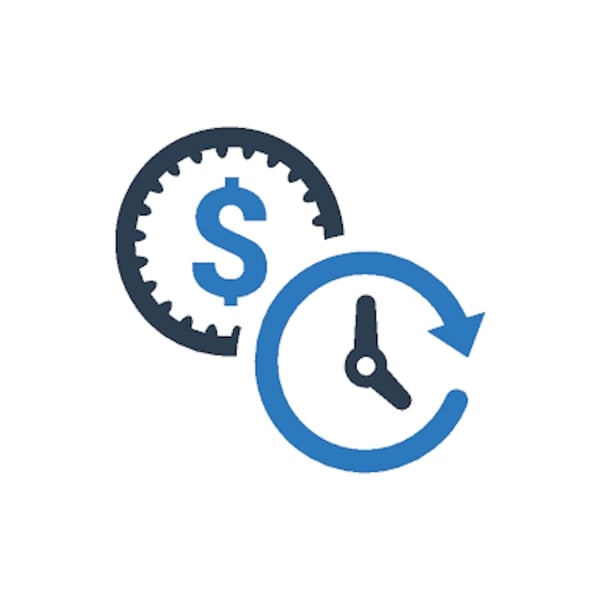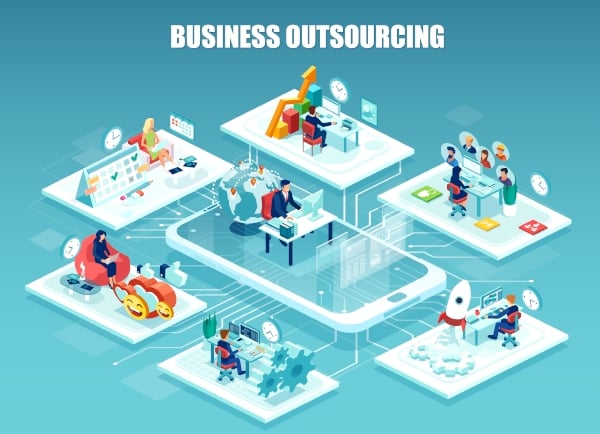Pop quiz time!!
What, according to you, are the three most important factors for a startup to successful?

I am sure a majority of you will have these two:
- Time
- Money
Let’s talk about time. Mark Zuckerberg’s mantra during the early Facebook days was “Move fast break things”.
If you want to capture the market, attain hyper growth. You know that it is really important to move fast.
And to do this you need money. So, what do you do? You sell your equity to raise money. You sell your stake in your company.
You might be thinking… “Arjun, let’s be real, nobody likes to sell their equity. But there is no other way”
But what if I told you there is a way? A way you get your startup to scale new heights without the need to pump in enormous amounts of money.
This way is outsourcing! (when done right of course, or else it could be a disaster)
By outsourcing non-core activities to your offshore/remote team, you get to save a lot of money without sacrificing quality (our promise).
This is a great way for you to save your equity in your company and use it to raise funds at a later stage when you really need it, or to keep the profits for yourself 🙂
Guide to Outsourcing for Startups

Outsourcing can happen in three ways:
- Outsource all work (Not recommended. You will have very little control of the output) .
- Set up an offshore/remote team (our favorite!!).
- Hire freelancers on sites like Upwork
We strongly recommend offshoring (option 2).
Here is how this option works:
- You hire a remote employee.
- This employee will work exclusively for you.
- The employee will work out of an office space in India during your time zone, and will report directly to you.
In the rest of this post we are going to talk about this option. How to hire remote employees. How to setup a remote team. Pros and cons amongst other things…so buckle up!
3 keys for successful offshoring
Key 1: Recruitment:

“High quality at a low cost”
I can’t emphasize the word QUALITY enough.
You shouldn’t be in the market for low quality employees just because they cost less. Instead you should be in the market for high performers. You may have to pay a little more for them—$9/hr. instead $6/hr. This is still significantly more affordable than US wages.
So what’s the secret sauce? How do you find these high performers??
Let me start by telling you a secret:
Talent isn’t everything.
Surprised? Now, let me explain.
Imagine you have a rock star developer who has bad communication skills.
Here is a likely scenario:
You have a great idea, which you’re PUMPED about. You tell your rock star dev the requirements.
He misunderstands your requirements and builds something completely different. You may have a great app but not the one you want!
My point: Communication > Talent
What is the point of outsourcing being one-third cheaper if you have to get things done twice!
Employees without excellent spoken and written English skills are useless to you, no matter how talented they are.
The best way to solve this problem: You need to have two rounds of assignments that test both English speaking and writing skills.
Only if the employee has good communication skills will he/she advance to the technical round.
We usually recommend four rounds on interview.
Round 1: Assignment to test written skills.
Round 2: English speaking test.
Round 3: Technical challenge/assignment.
Round 4: Interview round.
Rounds 1 and 2 should have minimum required scores. If the candidate doesn’t reach the score he will not proceed to Round 3.
Round 3 is an assignment to make sure the candidate is technically competent to fill the role.
Round 4 is to check if the candidate is a good cultural fit for your organization.
Key 2: Training

If you ask me, Hey Arjun! What activities have a massive impact on your business? I would most likely say training!
Training is the highest leverage activity you can perform.
Don’t believe me. Believe the math behind it!
You have 10 employees. Each employee works 40 hrs. a week, which works out to 2120 hrs. a year. Now, the total work hrs. for 10 employees is 21200 hrs. per year.
You may spend three weeks in training these employees, which takes up 120 hrs. of your time.
These 120 hrs. of yours will have a massive impact on the 21,200 work hrs. of your employees.
Being patient and providing holistic training for your employees will allow your business to move at great speed once all the new employees are up to speed.
Bad training is like a bad habit. Often bad habits, once learned, are difficult to break.
Think of it like a marathon, you can’t run at max speed right from the get go. In order to finish the marathon, you will need to pace yourself. You need to show what I call “strategic patience.”
You may be slow in the first quarter of the race, by half way you will be neck-and-neck with your competition. And by the time you reach the finish line you will have left the competition in the dust.
Training is similar: Going slow will allow you to lay a strong foundation, which will help you gain speed later.
It is highly recommended to spend as much time as you can afford on initial training.
Key 3: Right local partner in India.

Spoiler alert: It’s us:)
You may have heard horror stories about outsourcing: Poor quality of work, missed deadlines, misunderstanding.
Outsourcing needn’t be complicated. These bad situations can be easily avoided. You need a partner who not only understands the local culture but also your own culture.
You need a partner that understands your requirements, and importantly, who understands YOU.
Our way of looking at outsourcing: A remote team in India is still your team, a part of your company. They follow you to battle. They implement your vision. They adhere to your company’s culture. Like the rest of your team, they are your family!


